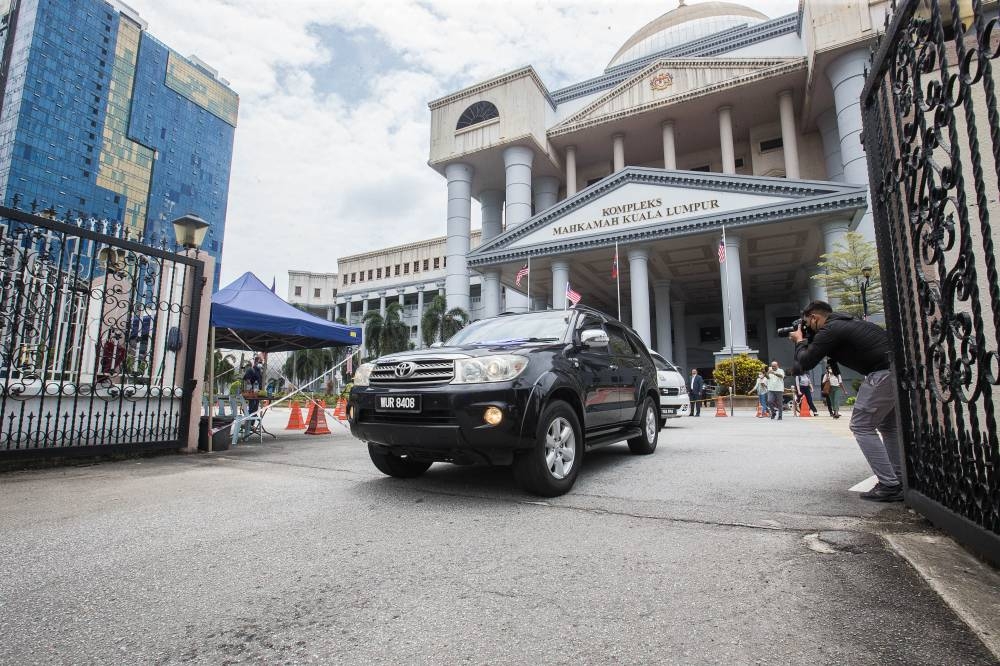SEPTEMBER 8 — Tan Sri Azhar Azizan Harun, the Speaker of the House of Representatives, has ruled that Datuk Seri Najib Razak (“DSNR”) will remain the Member of Parliament for Pekan until the disposal of the latter’s motion for review in the Federal Court and/or the latter’s petition for a pardon.
Hassan Abdul Karim, the Member of Parliament for Pasir Gudang, disagrees with Tan Sri Azhar Azizan Harun on, amongst others, the following grounds: (a) DSNR has been disqualified as a Member of Parliament as soon as the Federal Court handed its decision; (b) The royal pardon proceeding has not been heard; (c) The Royal Pardon Board is not a court; and (d) It is not stated in the Federal Constitution that if a Member of Parliament petitions to the Pardons Board or applies for a review of the Federal Court’s decision that his/her qualification as a Member of Parliament remains.
With all due respect to YB Hassan, all of his contentions do not hold water.
Article 48(1) of the Federal Constitution, which he is relying on, expressly begins with the phrase “Subject to the provisions of this Article.” This would mean that Article 48(1)(e) of the Federal Constitution, which YB Hassan is relying on to automatically disqualify DSNR as a Member of Parliament, has to be read together with the other provisions in Article 48 of the Federal Constitution.
Article 48(4) of the Federal Constitution has various sub-provisions of relevance.
Article 48(4)(b) and (c) of the Federal Constitution provides:
“Notwithstanding anything contained in the foregoing provisions of this Article, where a member of either House of Parliament becomes disqualified from continuing to be a member thereof pursuant to paragraph (e) of Clause (1) or under a federal law made in pursuance of Clause (2)—
...
(b) if within the period of fourteen days specified in paragraph (a) an appeal or any other court proceeding is brought in respect of such conviction or sentence, or in respect of being so convicted or proved guilty, as the case may be, the disqualification shall take effect upon the expiry of fourteen days from the date on which such appeal or other court proceeding is disposed of by the court; or
(c) if within the period specified in paragraph (a) or the period after the disposal of the appeal or other court proceeding specified in paragraph (b) there is filed a petition for a pardon, such disqualification shall take effect immediately upon the petition being disposed of.” (Emphasis mine) As DSNR appealed to the Federal Court, DSNR’s disqualification from being a Member of Parliament would only take effect 14 days after the disposal of his Federal Court appeal.

The Federal Court handed its decision, in relation to DSNR’s appeal, on August 23, 2022.
However, within the 14 days from the August 23, 2022: (a) DSNR filed a petition for a pardon, on September 2, 2022; and (b) DSNR filed a motion for review against the Federal Court’s decision, on 6th September 2022.
This would mean that Article 48(4)(b) and (c) of the Federal Constitution has come into play to “stay” (read: pause) DSNR’s disqualification as a Member of Parliament.
DSNR will only be disqualified as a Member of Parliament upon the expiry of fourteen days from the date of the disposal of his motion for review in the Federal Court or immediately upon the disposal of his petition for a pardon (whichever is later).
Granted, DSNR’s petition for a pardon has not been disposed of by the Pardons Board. However, Article 48(4)(c) of the Federal Constitution applies as soon as DNSR’s petition for a pardon has been filed.
Further, it is also granted that the Pardons Board is not a court. However, YB Hassan appears to be conflating between Article 48(4)(b) and (c) of the Federal Constitution.
Article 48(4)(b) of the Federal Constitution would apply to DNSR’s motion for review while Article 48(4)(c) of the Federal Constitution would apply to DNSR’s petition for a pardon.
* This is the personal opinion of the writer or organisation and does not necessarily represent the views of Malay Mail.





















